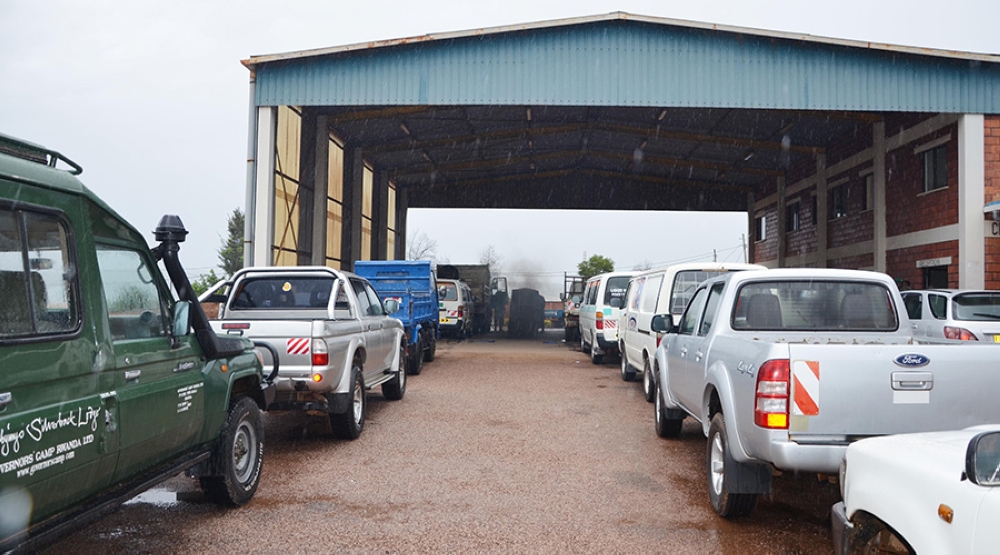A mere week into the new year my Twitter and Facebook timelines became inundated with posts about the demise of Mr. Karegeya in a hotel room in swanky Sandton, Johannesburg. I will not attempt to pretend to know circumstances surrounding his death because it would be an exercise in futility.


A mere week into the new year my Twitter and Facebook timelines became inundated with posts about the demise of Mr. Karegeya in a hotel room in swanky Sandton, Johannesburg. I will not attempt to pretend to know circumstances surrounding his death because it would be an exercise in futility.
The investigations are ongoing and until they are completed, all we’d be doing is speculating if we pretended to know exactly what happened and why. Personally, all I can say is that I feel for his family.The only thing that I will mention is that I was disappointed by many people’s reaction to the sad news. Without taking pause, wild accusations and conspiracy theories were bandied about like they were the truth. I noticed this even from people who should’ve known better. But I guess the question is, why should anyone care about the truth when a lie will suffice? Or half-baked theories? Either way, the reactions left a sour taste in my mouth.And on the topic of sour taste, yesterday this paper ran a story, ‘Banned milk products raise concern among consumers’ about four yogurt brands that RBS (Rwanda Bureau of Standards) found ‘not fit for human consumption’. According to the standards body, the plants that cooked up the batch of bad yogurt have been shut down and their products removed off market shelves. That is great news. Even better news is that the general public has been informed of exactly which brands have been banned. I find that revolutionary.In 2012, I woke up to find that my favourite cheese brand was impossible to find. After days of confusion, a restauranteur friend of mine informed me that RBS had recalled a lot of local brands because they were produced in conditions that were a recipe for disaster. When I asked a source in RBS which cheese manufactures were under the spotlight, he demurred. According to him, he couldn’t tell me because naming names would hurt the companies. To say that I was taken aback would be an understatement. It seemed to me that the body, which should have been protecting AND informing the public, was in the pocket of business interests.Livingstone, one of the people who commented on yesterday’s article, is livid that RBS named names. He writes, "somehow the standards body should have these checkups and advise (sic) the company to withdraw the said products without alarming the public and giving such negative publicity to the company, if it’s a minor issue found in just a batch of products, then why this alarm??? how will an enterprenuer (sic) cover this loss, how will they get back to the market, will RBS help in clearing the name of these companies when the issue is resolved. I am in a business of promoting SMEs and believe there is a better method than this which RBS had to use”.If I was in the business of making yogurt and gotten banned, I would also be angry that my concern was outed. However, as a consumer, I’m pleased that RBS has given me the information I need to make an informed choice when I go to the supermarket. I will be able to choose a yogurt from the brands that weren’t censured.In fact, if RBS hadn’t warned us, I would have accused them of being anti-business. I mean, why shouldn’t I be allowed to know that brands such as, say Masaka Farms and Inyange, produce yogurt that isn’t teeming with pathogenic bacteria? It should be up to the companies making yogurt to ensure that their product is above board. And if their product isn’t, let them suffer from reduced sales. I believe that that is what will force them to buy proper equipment and use proper manufacturing methods. This business of coddling food manufactures must stop.This should be standard across the board. The days of hiding the names of hotels and restaurants that give their clientele food poisoning must be left behind. The health and free choice of customers must be top priority of RBS, the Ministry of Health and other stakeholders. Not the businesses.The writer is The New Times' Editor pursuing a post-graduate degreeTwitter: @sannykigali




